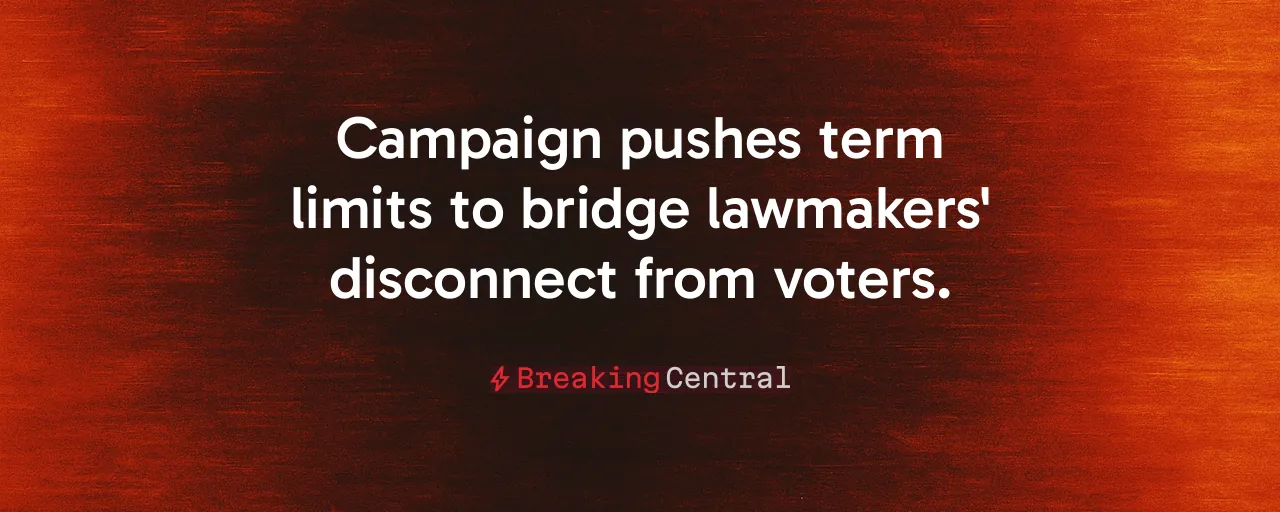A Call for Change in Kentucky
Nate Morris, a Kentucky entrepreneur running for the U.S. Senate in 2026, launched his campaign with a bold demand: term limits for Congress. He targeted retiring Senator Mitch McConnell, who has held his seat for over four decades. Morris argues that such long tenures create a disconnect between lawmakers and the people they serve, a sentiment that resonates with many voters frustrated by Washington's entrenched elite.
Morris's message, amplified by commentator Benny Johnson's viral clip, questions whether career politicians like McConnell truly understand the struggles of everyday families. The candidate's pointed critique, "What does McConnell know about you and your family?" struck a chord, igniting a broader conversation about the need for fresh perspectives in Congress.
This debate isn't new, but Morris's campaign has given it fresh urgency. With McConnell stepping down, Kentucky voters face a choice between continuity and disruption. The call for term limits taps into a deep desire for a government that reflects the realities of the private economy, not the insulated world of Washington.
The Problem With Career Politicians
Long-serving lawmakers often grow distant from the economic pressures facing ordinary Americans. After decades in office, their understanding of the private sector fades, replaced by reliance on donor networks and lobbyists. A 2023 Pew study found that 90 percent of Republicans support term limits, reflecting widespread frustration with a system where incumbents win re-election over 90 percent of the time.
This near-guaranteed job security fosters complacency. Seniority rules reward long-serving members with powerful committee roles, concentrating influence among a few. Critics argue this setup fuels pork-barrel spending and gridlock, as leaders prioritize their own re-election over national priorities. Morris's campaign highlights McConnell's 40-year tenure as a symbol of this entrenched power.
The Founders envisioned a citizen-legislator model, where public servants would return to private life after a brief stint. Term limits, advocates say, would restore that vision, ensuring Congress reflects the diverse experiences of its constituents rather than the narrow interests of a permanent political class.
A Constitutional Fix
Proponents of term limits, including groups like U.S. Term Limits, propose a constitutional amendment capping House members at three terms and senators at two. This idea, backed by former President Donald Trump, aims to break the cycle of careerism. Such a change would require two-thirds approval from both chambers and ratification by three-quarters of the states, a high bar but not impossible given public support.
National polls since 2020 show over 80 percent of Americans, across party lines, favor term limits. States like California and Michigan, which adopted limits for their legislatures in the 1990s, offer a glimpse of the impact. While some studies note increased diversity and new ideas, others point to challenges, like reliance on lobbyists when expertise wanes. Still, the appetite for change remains strong.
Balancing Experience and Renewal
Opponents argue that term limits could undermine voter choice and weaken Congress's ability to craft complex laws. They point to studies, like those from the Brookings Institution, showing that long-serving legislators build valuable policy knowledge. Forced turnover, they warn, might shift power to unelected lobbyists or executive agencies, diluting democratic oversight.
These concerns do not negate the need for reform. Term limits could be paired with measures like expanded staff training or bipartisan policy institutes to preserve expertise. The goal is to ensure experience serves the public, rather than entrenched interests. A Congress with regular turnover could better reflect the nation's evolving needs.
Lessons From the Past
The push for term limits surged in the 1990s with the Contract with America, a Republican pledge that briefly won House approval for an amendment in 1995. The Senate, however, blocked it. States tried imposing their own limits, but the Supreme Court's 1995 ruling in U.S. Term Limits v. Thornton struck them down, affirming that only a constitutional amendment can set federal limits.
McConnell's rise to power, beginning in 1985, coincided with this debate. His record as the longest-serving Senate party leader underscores why reformers see longevity as a liability. Periodic proposals, like those from Senators Ted Cruz and Ron DeSantis in 2017, show the issue's staying power, especially during populist moments.
A Path to Accountability
Term limits alone will not fix Washington, but they could reset a system that often prioritizes power over principle. Complementary reforms, like public campaign financing or open primaries, could further level the playing field for newcomers. Internal party rules, such as the Republican House's six-year cap on committee chairs, offer a model for encouraging turnover without constitutional hurdles.
Morris's campaign has sparked a vital conversation about who Congress serves. By focusing on term limits, he is tapping into a belief that government should answer to the people, rather than a self-perpetuating elite. As Kentucky's Senate race heats up, voters will decide whether this vision outweighs the appeal of institutional continuity.
The broader lesson is clear: a Congress that mirrors the dynamism of its citizens is more likely to tackle pressing challenges, from economic uncertainty to national security. Term limits could be the first step toward a government that listens, adapts, and delivers.
